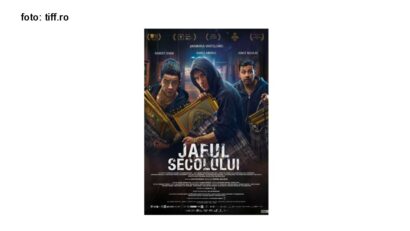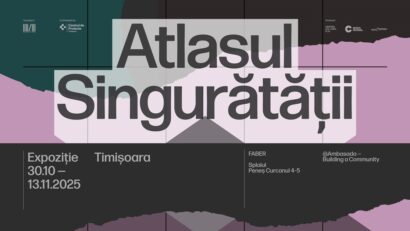The FILIT International Literature and Translation Festival
After its first edition in 2013, the FILIT International Literature and Translation Festival was noticed by the Spanish daily El Pais as “the most significant literary festival in Eastern Europe”, while the Frankfurter Allgemeine Zeitung said that “there has never been such an event of European importance in Romania”. The second edition of FILIT brings to Iasi, between October 1 and 5, over 300 book professionals, from Romania and other countries, as well as writers, translators, editors, festival organisers, literary critics, book sellers, book distributors, and cultural managers and journalists.

Corina Sabău, 11.10.2014, 14:23
After its first edition in 2013, the FILIT International Literature and Translation Festival was noticed by the Spanish daily El Pais as “the most significant literary festival in Eastern Europe”, while the Frankfurter Allgemeine Zeitung said that “there has never been such an event of European importance in Romania”. The second edition of FILIT brings to Iasi, between October 1 and 5, over 300 book professionals, from Romania and other countries, as well as writers, translators, editors, festival organisers, literary critics, book sellers, book distributors, and cultural managers and journalists.
The public had a chance to meet writers like Herta Muller, Nobel prize winner for literature, David Lodge, one of the most beloved writers alive, as well as Norman Manea and Mircea Cartarescu, whom many believe have good chances of being future Nobel prize winners. Herta Muller was awarded the Nobel Prize for Literature in 2009 for “the density of poetry and sincerity of the prose describing the universe of displaced people”. She is the twelfth woman to receive this distinction. British writer David Lodge is one of the most popular foreign writers in Romania, appreciated by both the critics and the public at large. Lodge’s presence at FILIT is also important because he has been seen very rarely in public lately, and this is his first visit to Romania. The famous novelist, playwright and scriptwriter is among the living legends of British prose.
Dan Lungu, manager of the festival, spoke to us about the challenges they face: “The biggest challenge was not to repeat ourselves, but to bring something new to the festival. We therefore came up with several new types of events and new guests. One such guest is Guillermo Arriaga, a well-known script writer and novelist. We never had a script writer as a guest before, so this is something new. I think it is a good idea to open the festival to new types of literature. We also tried to expand the festival beyond the five days it lasted so far. To this end, we created a residence programme for translators, as the festival is equally dedicated to writers and translators. The translators are also present during the five days of the festival itself, as this is a good opportunity for them to get acquainted with writers and hold professional discussions. It is also important for them to have a period of quiet and benefit from some financing to be able to finish the projects they are working on. So this year, we had six residences for translators.”
Held this year under the patronage of the European Commission Representative in Romania, the International Literature and Translation Festival featured public readings, encounters between writers and high school children and university students, special events hosted by the National Theatre, concerts, roundtable talks and specialist conferences. The Bookfest book fair, which was part of the International Literature and Translation Festival, also provided the reading public in Iasi with an opportunity to stay up to date with the latest publications of the most important publishing houses in Romania.
Dan Lungu again: “Another novelty this year was that apart from writers, we also invited 10 Romanian translators, with the help of the Writers Union and the Romanian Cultural Institute. Our ambition is to be able to recreate the entire complexity of the literary world during the International Literature and Translation Festival in Iasi. We have therefore brought together writers, journalists, cultural managers and literary agents. With 30,000 people, this time we had more visitors the festival than last year.”
The International Literature and Translation Festival in Iasi had a new section this year entitled “The House of Poetry”. Here’s Corina Bernic, the coordinator of this section and a programme called The Long Night of Poetry: “We are very happy to see that we have more and more visitors from all over the country. Last year we had a pilot project in which we wanted to test the public in Iasi and see how a longer event dedicated entirely to poetry, a poetry marathon lasting the whole night would be received. 30 poets from Romania and abroad were invited to participate in this event. Last year, I was the host of a talk as part of this programme with the writer Claudiu Komartin and I was surprised to see that we had over 500 people in the public. So we decided to continue this event, because in Iasi there are also many people who like poetry as well as prose. This year we expanded our poetry project and again hosted The Long Night of Poetry marathon. I hosted a talk with Silviu Dancu, but the programme also featured an entire series of readings from other Romanian poets.”
Twenty of the most important Romanian poets had a chance to meet their public every day of the festival at Dosoftei House, a symbolic location which hosted the first printing press in Moldavia in the 17th century. The list of the 20 poets includes some of the leading voices in Romanian contemporary poetry, from people who made their debut in the 1960s and then went on to become great names on the Romanian literary scene, to young poets whose names have been heard increasingly in recent years.






























